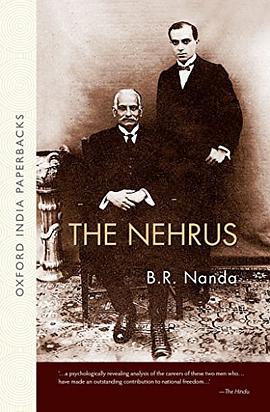

具体描述
Debates over post-Kyoto Protocol climate change policy often take note of two issues: the feasibility and desirability of international cooperation on climate change policies, given the failure of the United States to ratify Kyoto, and the very limited involvement of developing countries; and the optimal timing of climate policies. These essays by leading international economists in this book offer insights on both these concerns. The book first considers the appropriate institutions for effective international cooperation on climate change, proposing an alternative to the Kyoto arrangement and a theoretical framework for such a scheme. The discussions then turn to the stability of international environmental agreements, emphasizing the logic of coalition forming (including the applicability of game-theoretical analysis). Finally, contributors address both practical and quantitative aspects of policy design, offering theoretical analyses of such specific policy issues as intertemporal aspects of carbon trade and the optimal implementation of a sequestration policy and then using formal mathematical models to examine policies related to the rate of climate change, international trade and carbon leakage, and the shortcomings of the standard Global Warming Potential index.ContributorsPhilippe Ambrosi, David F. Bradford, Barbara Buchner, Carlo Carraro, Parkash Chander, Stephane De Cara, Damien Demailly, A. Denny Ellerman, Johan Eyckmans, Michael Finus, Elodie Galko, Roger Guesnerie, Jean-Charles Hourcade, Pierre-Alain Jayet, Gilles Lafforgue, Bernard Magne, Sandrine Mathy, Michel Moreaux, Sushama Murty, William A. Pizer, Philippe Quirion, Katrin Rehdanz, P. R. Shukla, Jaemin Song, Ian Sue Wing, Sylvie Thoron, Richard S. J. Tol, Henry Tulkens
作者简介
目录信息
读后感
评分
评分
评分
评分
用户评价
坦白说,阅读这本书的过程,更像是一场与作者思维的深度对话,而不是单向的信息接收。作者在行文中,时不时地会抛出一些极具挑战性的反问句或者开放性的设想,这些“留白”的空间,极大地激发了读者的主动思考。我发现自己经常在读完一段论述后,需要停下来,在脑海中进行一番推演和反驳,试图去完善或挑战作者构建的体系。这种互动性,使得阅读体验远超一般的学术著作。它没有提供所有问题的标准答案,而是提供了一套精妙的提问方式和分析工具,让你带着更锋利的思维武器走向真实世界。这种赋能感,是衡量一本优秀著作的极高标准,这本书无疑达到了,它不仅是知识的载体,更是思维的催化剂。
评分这本书在概念构建上的深度和广度,简直令人咋舌,它真正做到了“穿透现象看本质”。作者没有满足于对表面现象的描述,而是深入挖掘了驱动这一切的底层逻辑和机制。我尤其欣赏其中关于结构性制约因素的分析部分,那段文字对权力动态和利益冲突的剖析,犀利而又深刻,毫不留情地揭示了许多被传统观点所忽略的盲区。它迫使我重新审视自己过去基于直觉形成的认知框架,每一个论点都像是重锤,敲碎了旧有的定势思维。行文的语言风格冷峻而富有思辨性,不带丝毫感情色彩,但其背后蕴含的对现实的关怀和对未来的忧虑却溢于言表。读完之后,感觉自己的思维被彻底拓宽了一个维度,不再局限于线性的思考,而是开始用更加系统和辩证的眼光去看待复杂的世界。
评分这本书的创新性,主要体现在它对现有知识体系的有力挑战和有机融合上。它巧妙地整合了多个原本看似风马牛不相及的学科领域的研究成果,并以一种前所未有的方式将它们串联起来,形成了一个具有强大解释力的全新分析框架。我最欣赏它摒弃了过去那种非黑即白的二元对立思维,而是着力于展示光谱上的连续性和中间状态的复杂性。这种跨学科的视野,使得书中的论证具有无懈可击的逻辑自洽性,同时又极大地拓展了我们对同一议题进行多角度审视的可能性。对于那些习惯于在单一学科内打转的研究者来说,这本书无疑是一剂强效的“兴奋剂”,它不仅提供了新的工具,更激发了全新的研究方向和批判性思考的勇气。
评分这本书的叙事节奏掌控得堪称一绝,作者仿佛是一位技艺高超的建筑师,精心布局着每一个章节的展开。开篇的引人入胜,如同拨开迷雾,将读者直接置于一个宏大且充满张力的情境之中,让你立刻感受到问题的复杂性和紧迫性。接着,叙事线索层层递进,并非简单的罗列事实,而是巧妙地编织了多个看似独立却又相互关联的故事线,每条线索都有其自身的逻辑和情感冲击力。特别值得称道的是,在处理那些技术性极强的内容时,作者运用了大量的比喻和类比,将晦涩的理论变得生动易懂,仿佛在脑海中构建起一座座清晰的模型。这种叙事技巧的成熟度,让人不禁惊叹于作者对文本驾驭的纯熟,每一次转折都恰到好处,既保持了阅读的悬念,又保证了信息传递的准确性,读起来完全没有拖沓感,全程都被牢牢吸引。
评分从文学性的角度来看,这本书的笔触是极其细腻和富有张力的。作者在描绘那些关键场景时,那种画面感是如此强烈,仿佛我正身临其境地参与到那些决策过程之中。举例来说,描绘早期谈判桌上的微妙博弈时,那些细微的肢体语言、一闪而过的眼神交流,都被捕捉得丝丝入扣,这不仅仅是信息传递,更是一种沉浸式的体验。这种对细节的极致追求,为严肃的主题增添了一层人性化的温度,使得原本可能枯燥的理论讨论变得有血有肉,引人入胜。更难得的是,即便是在叙述宏大的历史背景或跨国协作的复杂性时,作者也从未丢失对个体命运和情感波动的关注,这一点让整本书读起来既有史诗般的厚重感,又不失个体故事的亲切感。
评分 评分 评分 评分 评分相关图书
本站所有内容均为互联网搜索引擎提供的公开搜索信息,本站不存储任何数据与内容,任何内容与数据均与本站无关,如有需要请联系相关搜索引擎包括但不限于百度,google,bing,sogou 等
© 2026 book.wenda123.org All Rights Reserved. 图书目录大全 版权所有




















